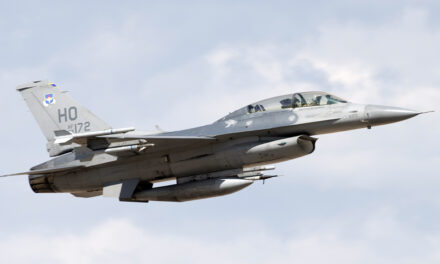Satellite communications for aviation with the Executive Director of Aviation at Iridium Communications Inc. In the news, we’ve lost an aviation icon, a DOT Office of Inspector General report looks NextGen, an unruly passenger pays the price, a second Boeing whistleblower dies, the declining value of frequent flyer programs, and squawking the 7700 emergency distress code.
Guest
John Peterson is the Executive Director of Aviation at Iridium Communications Inc., a satellite communications company offering global voice and data coverage. John helps deliver Iridium’s safety, voice, and data solutions to pilots and operators. John is an aviation enthusiast and private pilot who has worked in the industry for 30 years in different roles, including engineering, product management, and leadership roles at Boeing, Collins, Gogo, and Honeywell.
Iridium provides an L-band service with signals that pass through weather effectively. The Ku-band and Ka-band frequencies used by others have higher data rates but are more susceptible to degradation caused by weather. Because of the L-band reliability, those frequencies are permitted for safety applications.
John explains that the infrastructure for ground-based communication is robust in the U.S., but not so over the ocean. Thus, satellite communications are necessary for flights over areas without ground stations.
We learn that the Iridium “legacy” satellites have a data rate of 2.4 kbps while the new Iridium Certus® satellites offer a faster 700 kbps. John explains the orbital planes of the Iridium Low Earth Orbit satellites and how data gets to ground stations via cross-links between satellites.
John tells us about GA applications for satellite communications and the value-added resellers. We also explore critical infrastructure support, narrow-band IoT (direct-to-device) technologies, and how low-cost hand-held transponders could bring significant value to aviation.
Aviation News
Dick Rutan, co-pilot of historic round-the-world flight, dies aged 85
Dick Rutan was a USAF pilot, a Vietnam War veteran who flew 325 missions, and a test pilot. He flew the first unrefueled non-stop flight around the world with Jeana Yeager in the Rutan Voyager, designed by his brother Burt. Dick Rutan and Mike Melvill flew two Rutan Long-EZ kit aircraft around the world as the Spirit of EAA Friendship World Tour. Dick set the point-to-point distance record in a ground-launched, rocket-powered aircraft. He died from complications of Long COVID in Coeur d’Alene, Idaho, on May 3, 2024. He was 85.
DOT Inspector General Report Faults FAA NextGen Progress
The Next Generation Air Transportation System (NextGen), is a large-scale FAA initiative to modernize the U.S. National Airspace System (NAS). According to the FAA, “NextGen… has modernized air traffic infrastructure in communications, navigation, surveillance, automation, and information management with the aim of increasing the safety, efficiency, capacity, predictability, flexibility, and resiliency of American aviation. NextGen’s scope includes airport infrastructure improvements, new air traffic technologies and procedures, and safety and security enhancements.”
The U.S. Department of Transportation’s Office of Inspector General (OIG) report says the NextGen air traffic management technology is not living up to FAA promises.
See: FAA’s Report on Air Traffic Modernization Presents an Incomplete and Out-of-Date Assessment of NextGen [PDF] from the OIG.
A United Airlines passenger got “belligerent” with flight attendants. Here’s what that will cost him.
A passenger from Chelmsford, England on a flight from London to Newark, New Jersey had a loud argument with his girlfriend. Then he started yelling at a flight attendant. Court documents indicate that he was verbally and physically aggressive. The TSA said, “When flight attendants asked [the man] to be quiet and attempted to calm him, he became belligerent, threatening, and intimidating towards them. He also said that he would “mess up the plane.” The man was restrained and the plane diverted to Bangor, Maine. On March 22, 2024, he pleaded guilty to one count of interfering with a flight crew and was sentenced to time already served and ordered to pay United Airlines $20,638.
Was Foul Play Involved in the Boeing Whistleblowers’ Deaths? People Are Definitely Worried About It.
A second Boeing whistleblower has died, in this case, the man was 45 and passed after becoming suddenly ill. Two months ago, another whistleblower was found dead in his truck from a gunshot wound.
The bad news about your airline points
It’s harder to gain status on Delta, Alaska has increased points needed for some destinations, American limited what tickets earn points (based on where you bought the tickets), some airlines stopped posting redemption charts so you don’t know what your points are worth, airlines sometimes charge more for “mileage multipliers” than what the points are worth, and some airlines charge a fee to transfer points.
Mystery of Why Multiple Flights Over Belgium Suddenly Started Transmitting Emergency Distress Call in Quick Succession Has Been Solved
At least four aircraft flying over Belgium squawked the 7700 emergency distress code at about the same time. Observers were curious about why, but the controller asked them to squawk 7700 when rerouting them through airspace where the military was conducting training.
Mentioned
Hosts this Episode
Max Flight, Rob Mark, our Main(e) Man Micah, and David Vanderhoof.
The post 798 Satellite Communications appeared first on Airplane Geeks Podcast.






